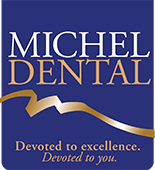Sleep apnea, the cessation of breathing for ten or more seconds at a time during sleep, is a common sleep disorder, but studies have revealed that many patients’ sleep apnea goes undiagnosed due to the lack of understanding of this disease and how it effects patients’ lives. As part of our ongoing dedication to helping patients achieve and maintain their optimal level of oral and overall health, we provide comfortable and effective oral appliance therapy for patients suffering from sleep apnea. However, we can’t help patients unless they know they have sleep apnea. Read this blog to find out some of the most common risk factors and warning signs of sleep apnea, and contact our office if you experience any combination of these symptoms. We review your case, and we partner with a local sleep physician to coordinate diagnosis and treatment.
Am I at Risk for Sleep Apnea?
If you’re concerned you may be suffering from sleep apnea, it’s often a good starting point to evaluate following traits that place patients at a higher risk:
- Men are almost twice as likely to develop sleep apnea as women
- Some early indicators suggest that African American patients are at an increased risk
- Patients over the age of 50 are among the most likely to develop apnea
- A body mass of 35 kg/m2 or higher
- Neck size often plays a part, and women with a 16 inch or greater neck circumference and men with 17 inch or greater circumference are at greater risk to develop apnea
What are the Warning Signs of Sleep Apnea?
If you match any of the above characteristics, it’s time to start watching for some of the symptoms of sleep apnea. One reason sleep apnea frequently remains undiagnosed is that the side effects are extremely varied. Some of the most common warning signs that you’re suffering from sleep apnea include:
- Chronic loud snoring is the most predominant adverse effect
- Waking out of breath or gasping frequently throughout the night
- Waking with a sore throat or hoarse voice
- Morning headaches that happen on a regular basis
- Earaches, neck or back pain with no known cause
- Excessive daytime sleepiness even after sleeping eight or more hours
- Lack of concentration, memory loss, confusion, and other cognitive or behavioral changes
How Can my Topeka Dentist Help?
The most common type of sleep apnea is obstructive sleep apnea. As the name suggests, this type of sleep apnea occurs when patients’ airways are obstructed during sleep. At Michel Dental, we provide sleep apnea sufferers a small, comfortable oral appliance that gently shifts the jaw forward, placing strain on the throat muscles that keeps the airway clear during sleep. This option is great for patients who are unable to adjust to CPAP therapy, those who don’t achieve adequate relief with CPAP alone, and those who travel by plane frequently making CPAP less than ideal.
